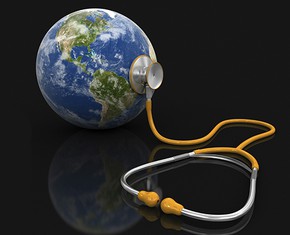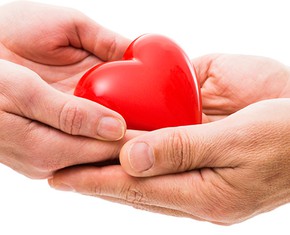The views expressed in our content reflect individual perspectives and do not represent the authoritative views of the Baha'i Faith.
…man should know his own self and recognize that which leadeth unto loftiness or lowliness, glory or abasement, wealth or poverty… – Tablets of Baha’u’llah Revealed after the Kitáb-i-Aqdas, pp. 34-35.
When the science of psychology began to separate from philosophy in the 1870’s, and continued to develop with Sigmund Freud’s early work in psychoanalysis during the late 19th and early 20th Century, it first started with the study of human pathologies. Freud and the psychiatrists he trained wanted to understand mental illness, so they studied “disturbed” individuals and tried to help them, just as physicians had long studied people with physical diseases in an attempt to find cures.
This Freudian model, which offered the world a theory of human psychology based on illness, has largely gone out of fashion now.
Instead, several new models of self-knowledge based on the study of psychologically healthy people have emerged. During the past two decades one movement called Positive Psychology has developed. The term “positive psychology” came originally from Abraham Maslow’s work, which focused on defining and promoting mental health rather than simply treating mental illness. Positive psychology uses science to study healthy, well-adjusted, self-actualized individuals, and utilizes its findings to offer people ways to lead happy and positive lives. All of this new focus in understanding human psychology has led to a realization that altruism, selflessness and compassion for others are fundamental human traits, which we must find ways to develop if we want to be truly fulfilled.
In other words—doing good makes people happy. That basic human equation, positive psychologists have learned, has deep roots in our psyche. We’re not only hard-wired mentally as altruists; we’re also not entirely happy emotionally unless we’re extending ourselves in the service of others.
That means we can successfully subordinate our egos to our enlightened souls, if we recognize and act on the reality of the oneness of humanity. The best way to transcend your own problems? Help others with theirs.
Easier said than done, of course.
So let’s review those three powerful, life-changing arguments for altruism:
Because altruism creates love in the world, which comes right back to you;
Because we already, naturally, organically have the potential for altruism in us; and
Because in every Faith, God asks us to transcend our individual egos, to sacrifice our personal concerns, and to truly love one another, not just in our hearts but in our actions.
Would you like to better understand your own altruistic nature?
Several online quizzes, tests and evaluative tools exist to help you determine your AQ, your altruism quotient. The Greater Good Science Center, based at the University of California, Berkeley, offers one good beginning AQ tool. Based on the principles of positive psychology, The Greater Good Science Center studies the psychology, sociology, and neuroscience of well-being, and teaches skills that foster a thriving, resilient, and compassionate society. You can go to the site and take their 30-question altruism quiz for free.
Once you take this short quiz and explore the Greater Good site, you’ll notice their main theme—that individual happiness and well-being promotes social well-being, and vice versa—fits beautifully with the calls for altruism and the unity of humanity from the Baha’i teachings. Positive psychology, because it sees compassion as a fundamental human trait, attempts to nurture the positive, cooperative side of human nature, just as the deep spiritual teachings of the Baha’i Faith promise us happiness when we devote our energies to the unity and the well-being of the entirety of humankind:
The greatest gift of man is universal love – that magnet which renders existence eternal. It attracts realities and diffuses life with infinite joy. If this love penetrate the heart of man, all the forces of the universe will be realized in him, for it is a divine power which transports him to a divine station and he will make no progress until he is illumined thereby. Strive to increase the love-power of reality, to make your hearts greater centers of attraction and to create new ideals and relationships.
First of all, be ready to sacrifice your lives for one another, to prefer the general well-being to your personal well-being. Create relationships that nothing can shake; form an assembly that nothing can break up; have a mind that never ceases acquiring riches that nothing can destroy. If love did not exist, what of reality would remain? …Strengthen this superior force through which is attained all the progress in the world.
May the light of divine advancement shine upon you. This is the glory and progress of man. This is eternal life. – Abdu’l-Baha, Divine Philosophy, pp. 111-112.

















Comments
Sign in or create an account
Continue with Googleor